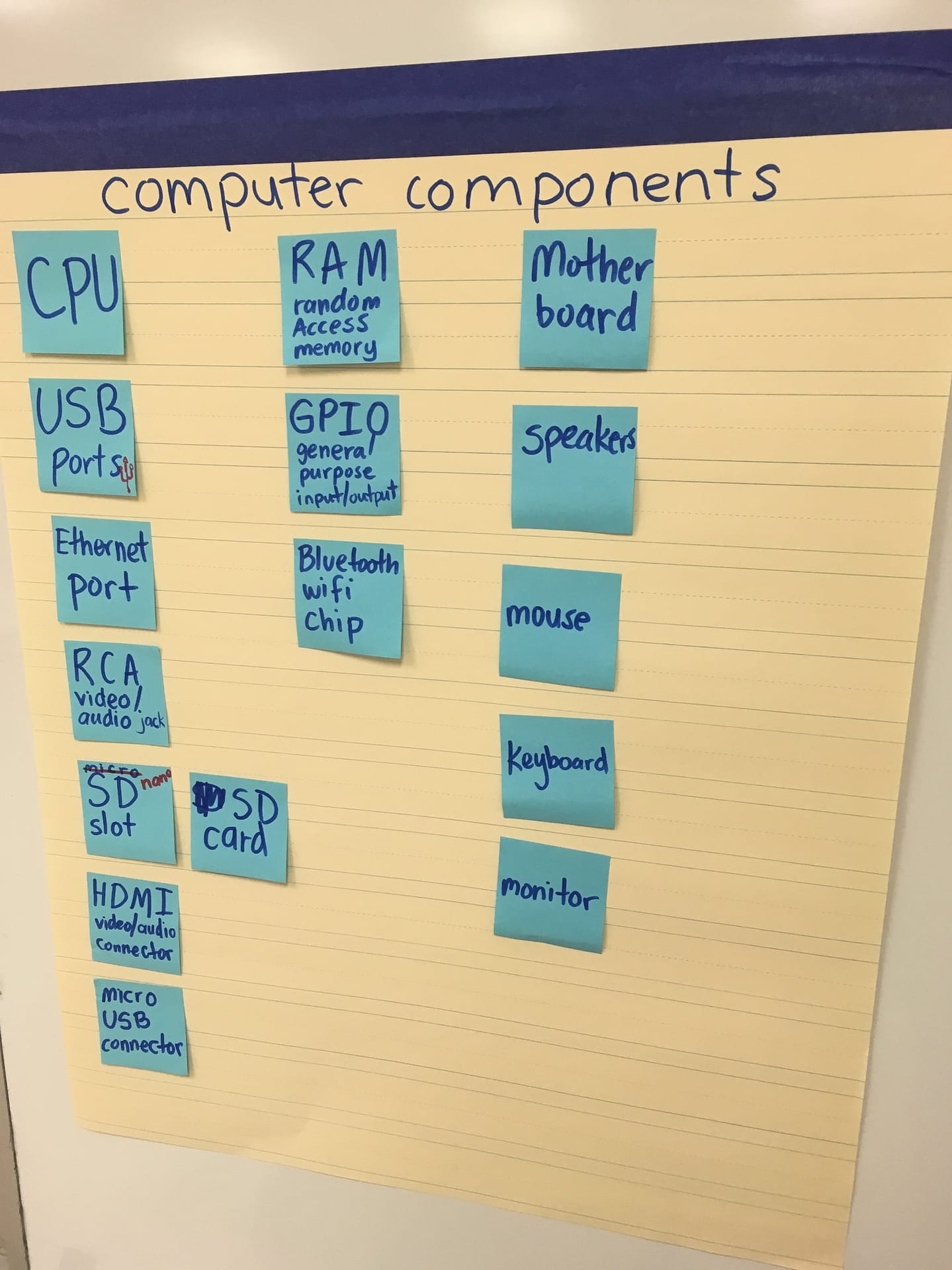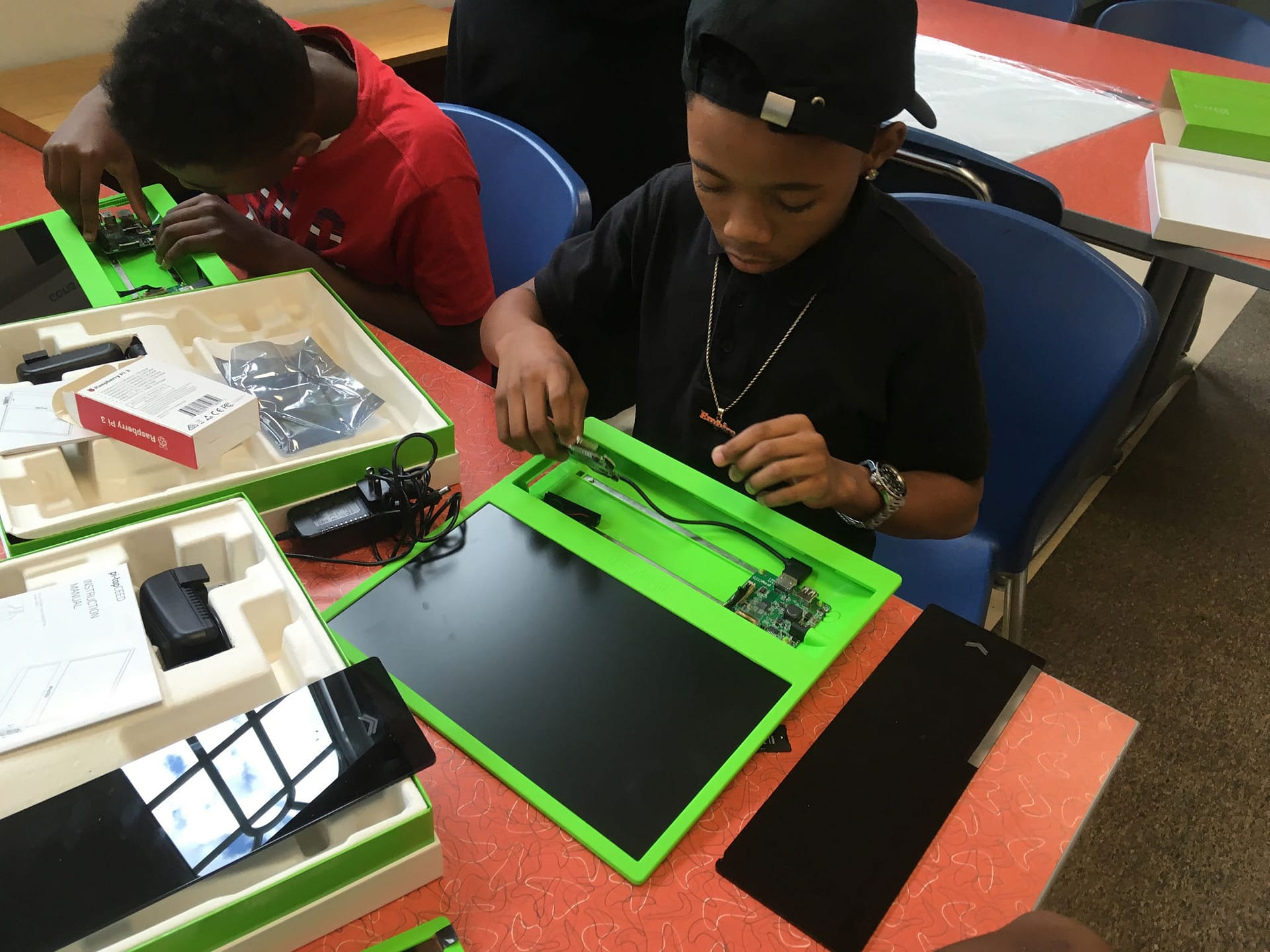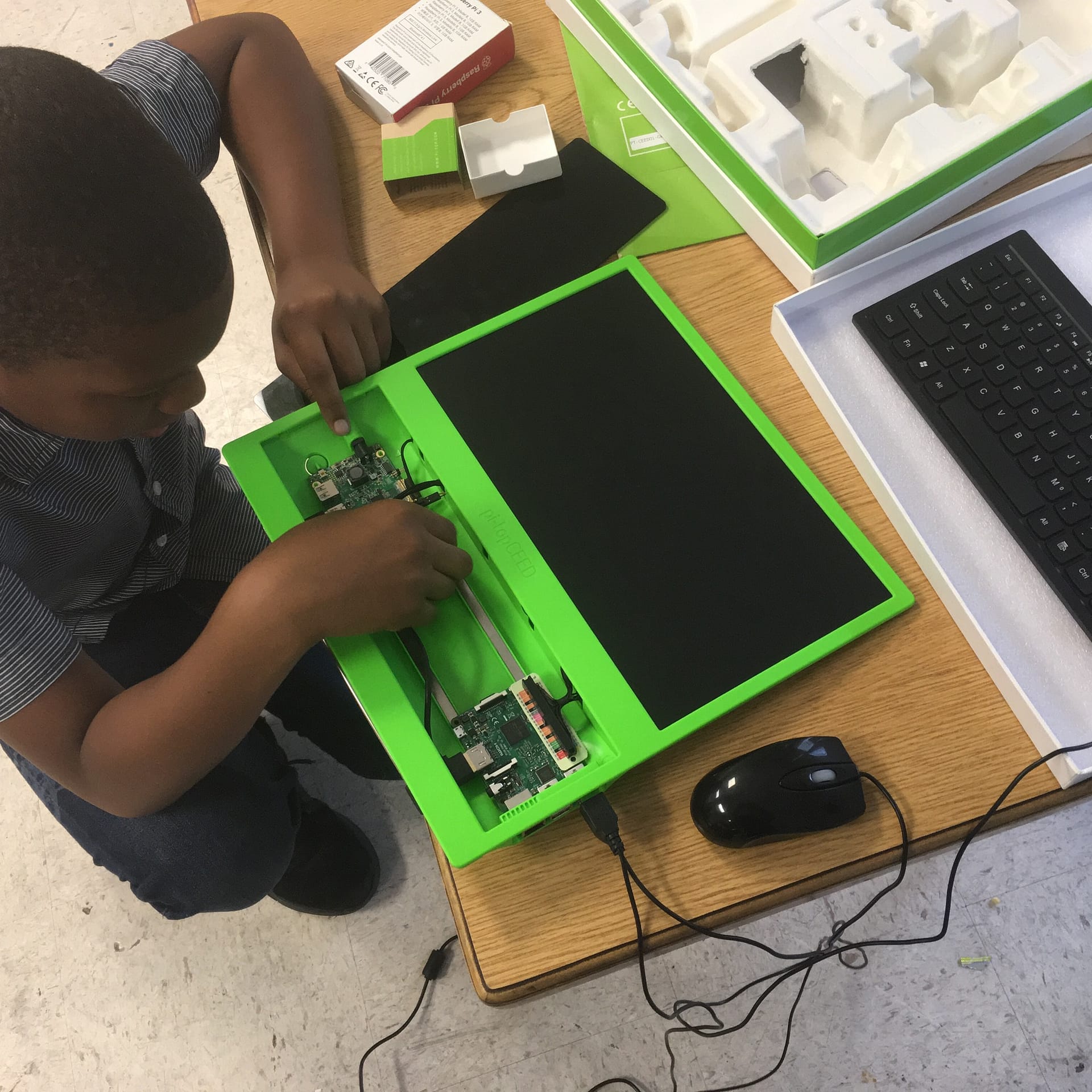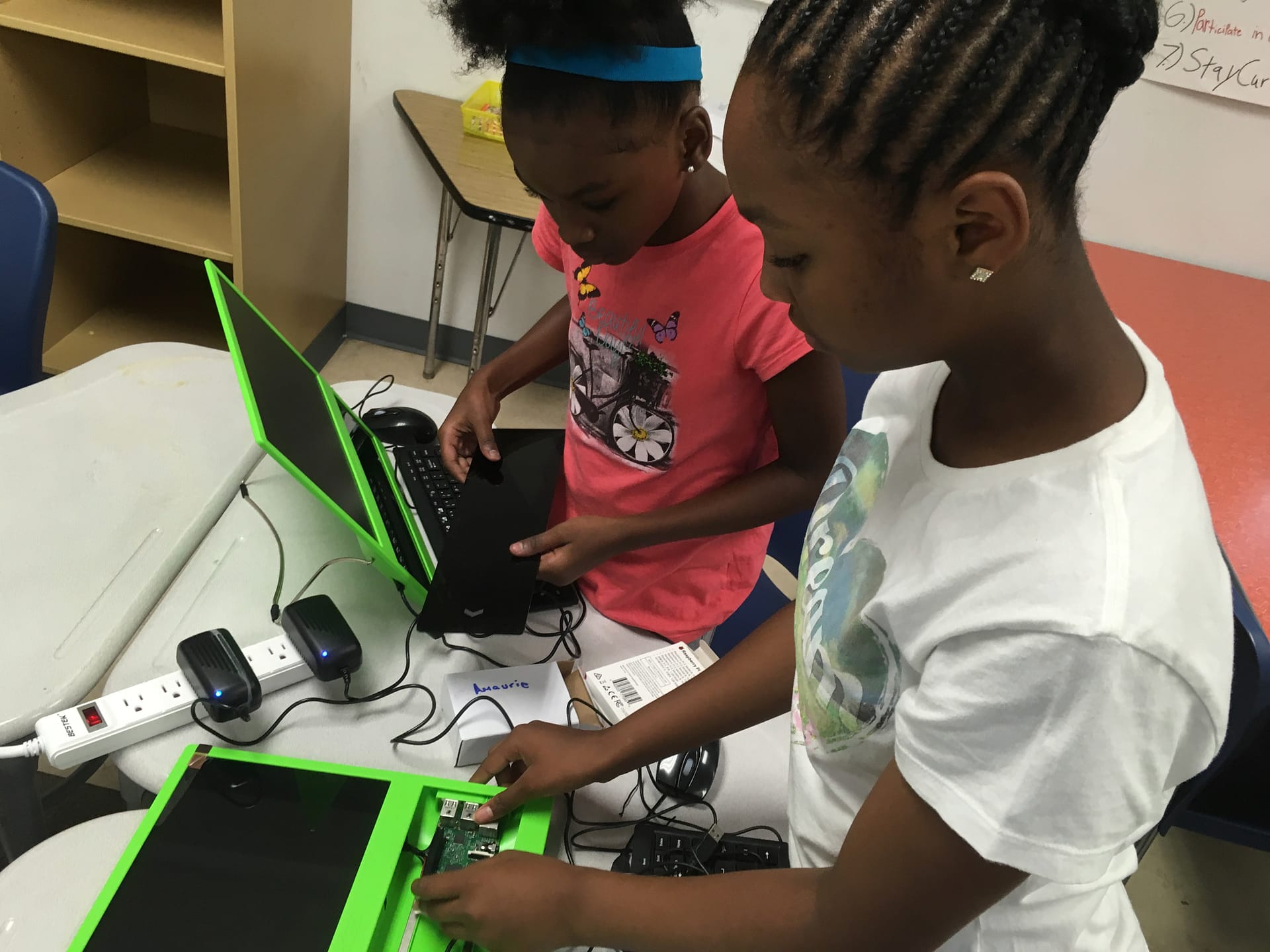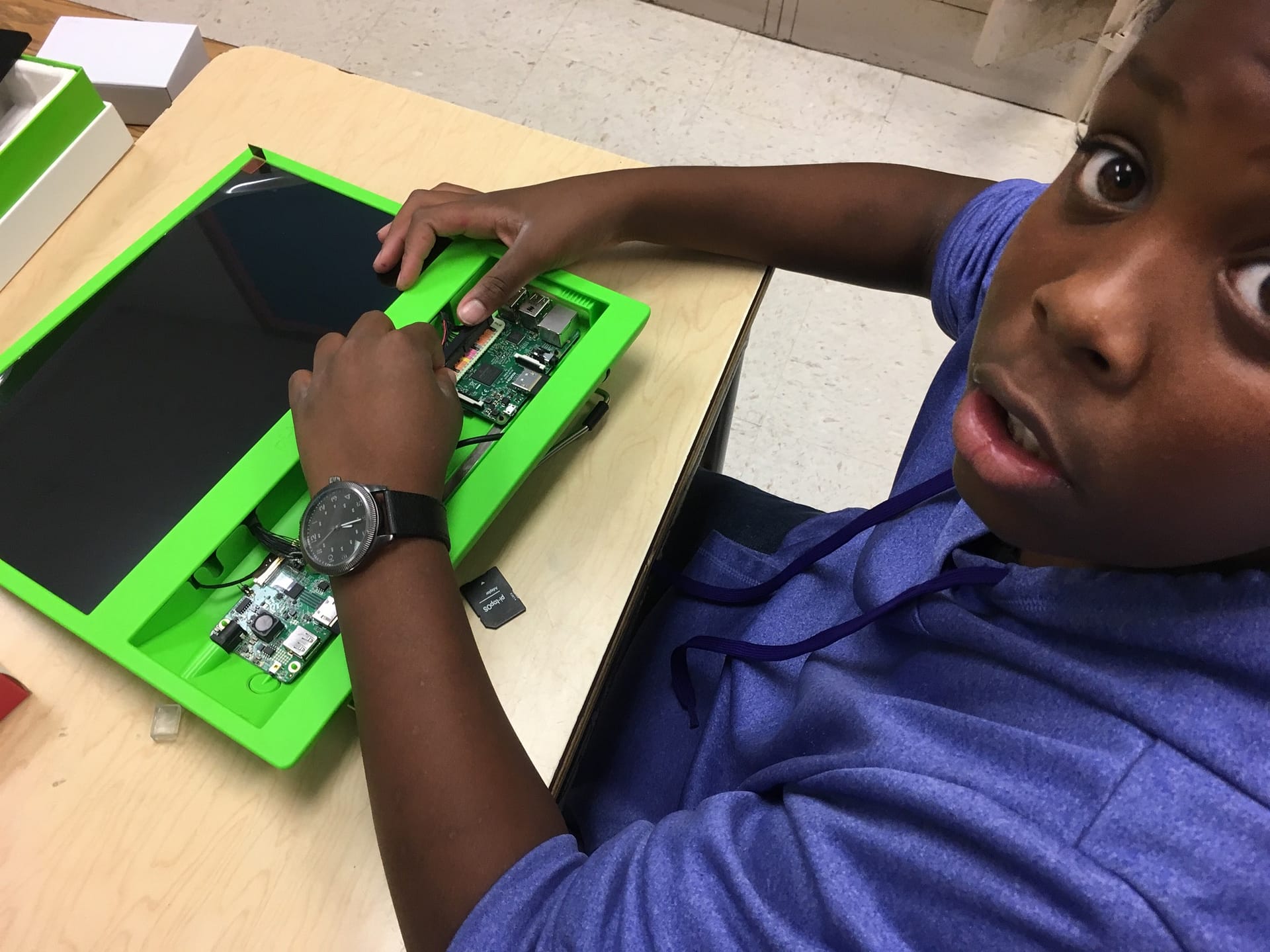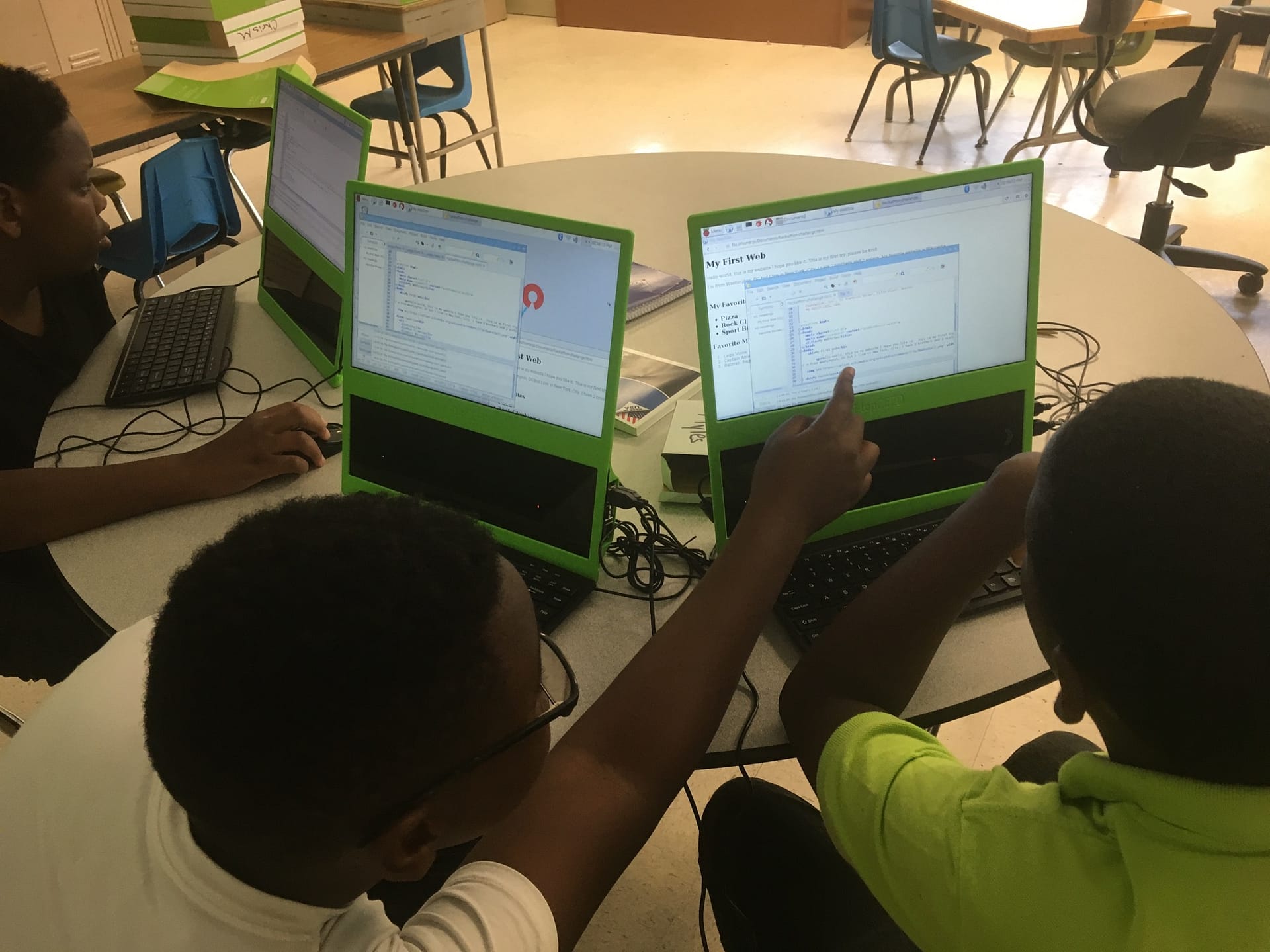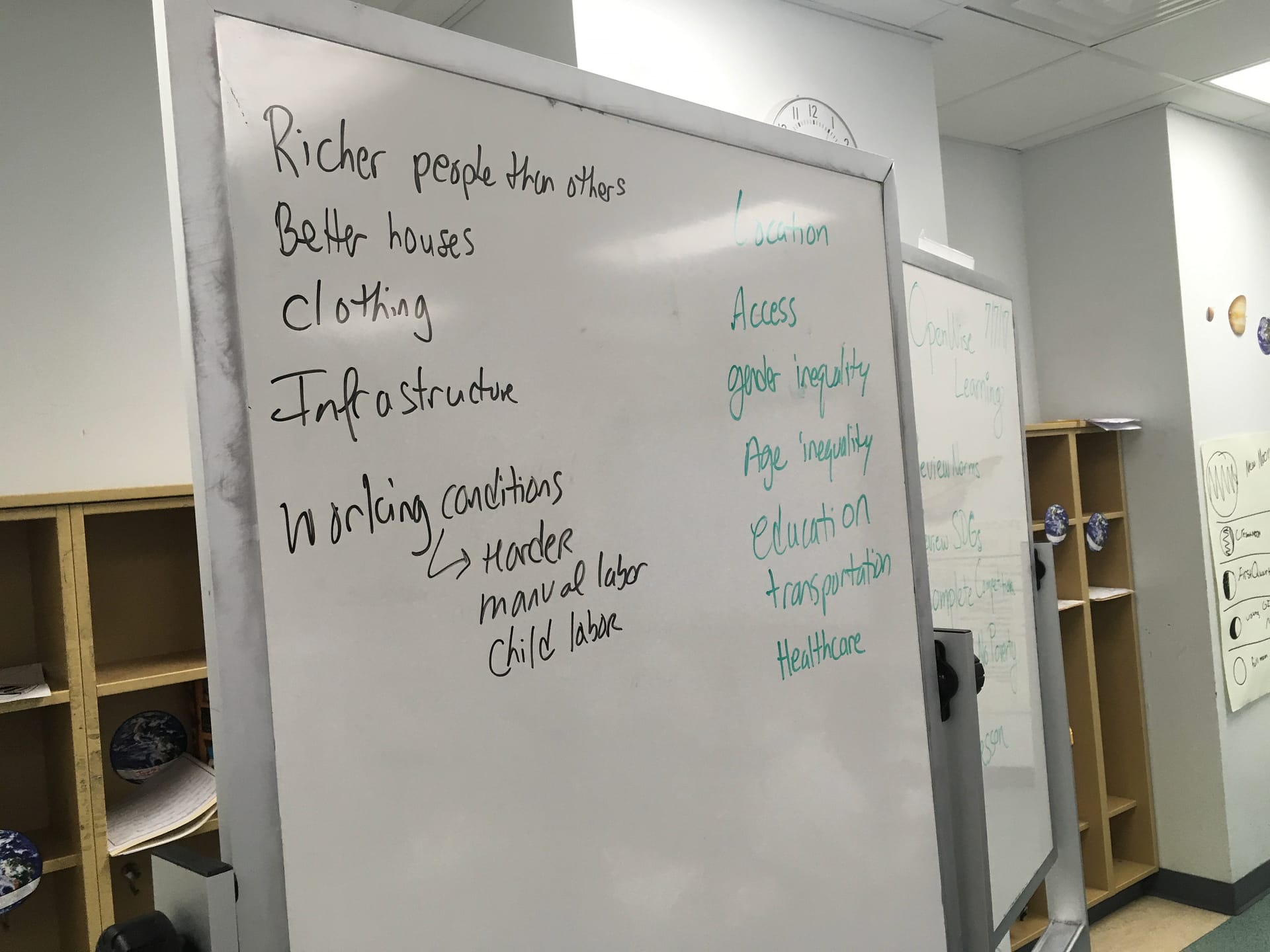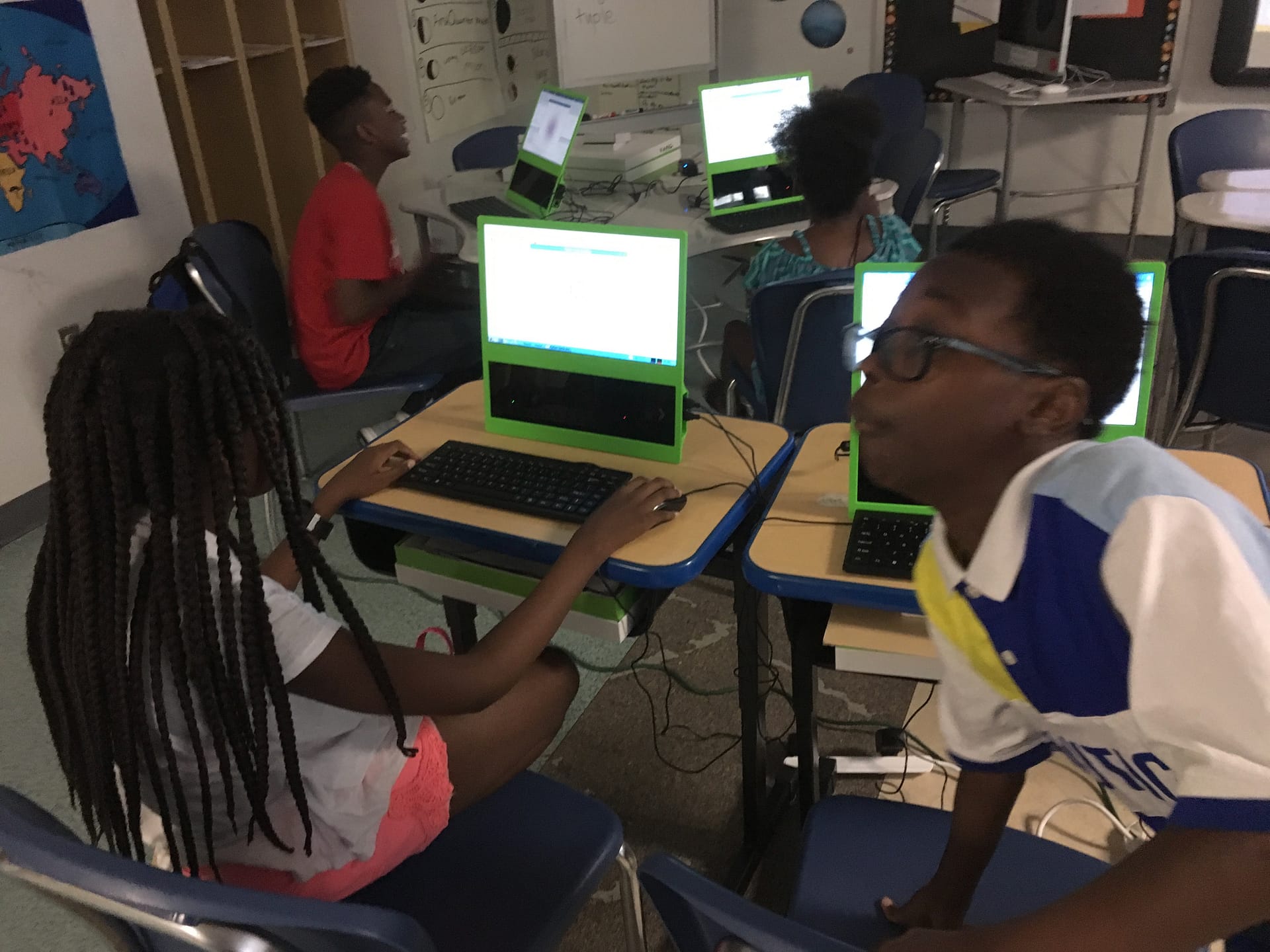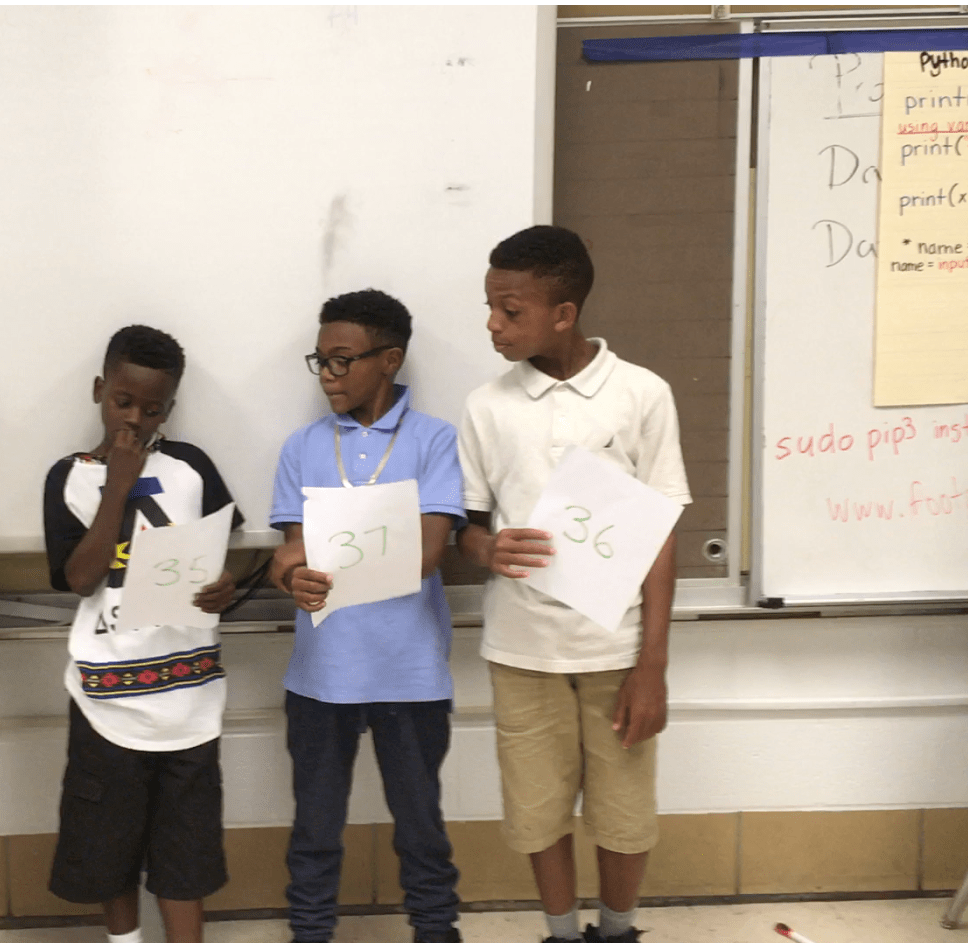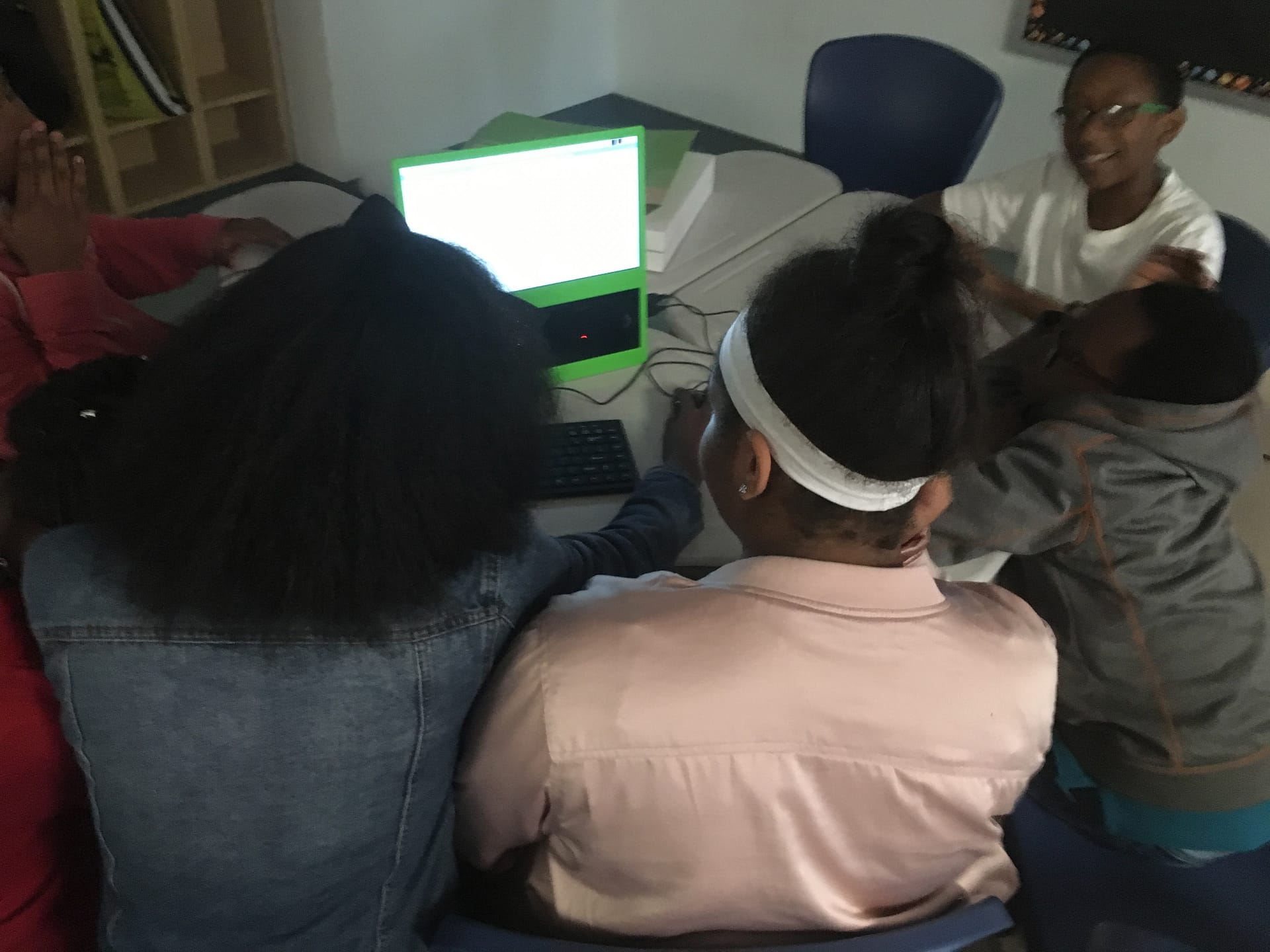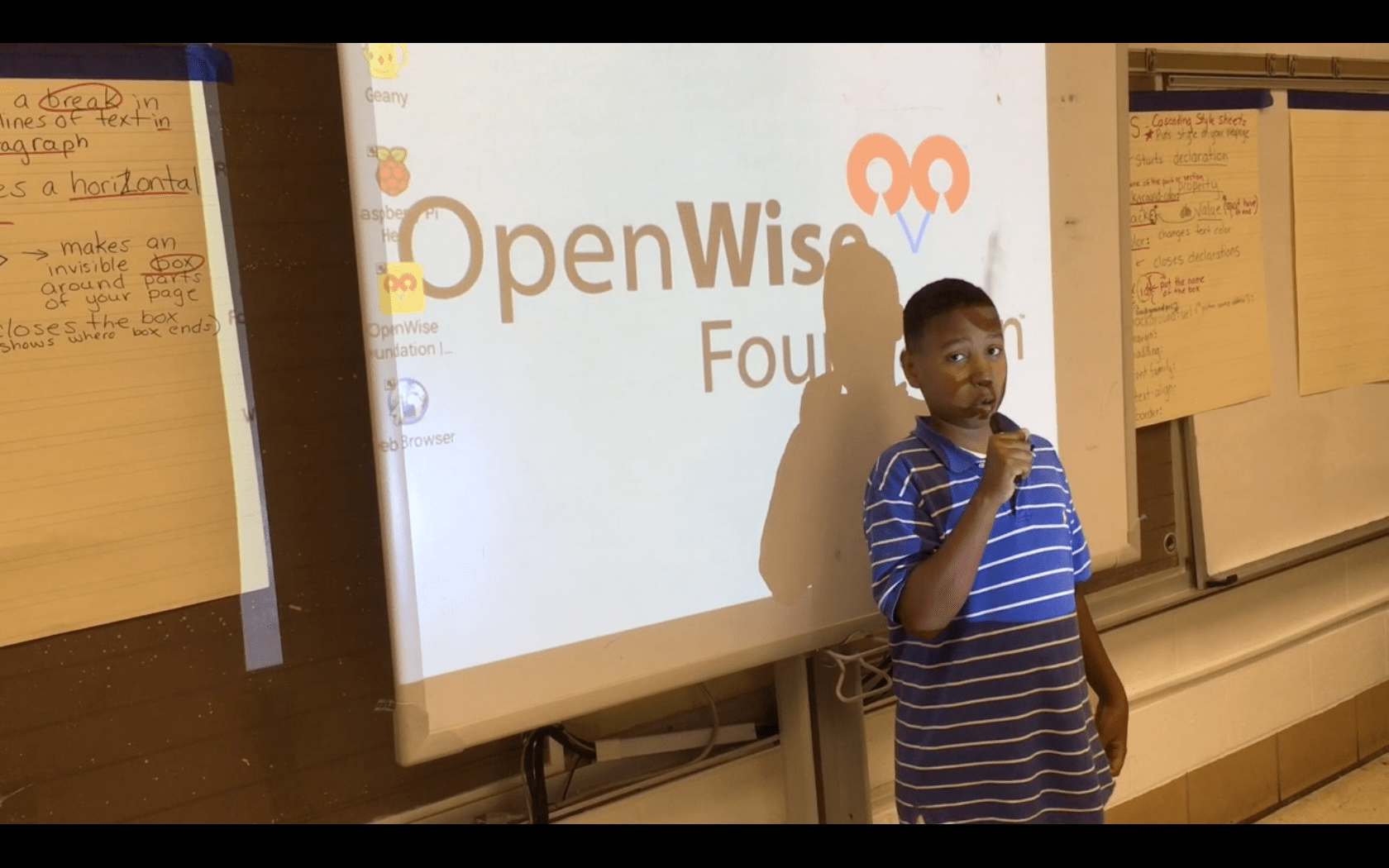The OpenWise Learning (OWL) Immersive is the first program our Scholars take part in when they join us at OWL. In Washington DC, we select applications from rising 6th, 7th, and 8th-grade students (ages 11 to 13) to participate in our five-week summer immersive. We assess baseline skills and teach basic, intermediate, and advanced technology skills. Additionally, we integrate social justice and ecological justice curriculum through the introduction of lessons on the Sustainable Development Goals (SDGs).
We strive to create a social emotional learning environment and to make the content and the educational experience culturally responsive , fun and engaging for our Scholars. Scholars learn collaborative work lessons through team work. Skills and knowledge are reinforced through good-natured competition and gamification .
The Scholars in the program are given a new Raspberry Pi computer with a monitor, keyboard, and mouse to use in their study and exploration during the program. Upon graduation from the program, the Scholars are allowed to take the equipment home for further study and for use in the STEM Leadership Corps. The Scholars produce a project in the final week to demonstrate the skills and knowledge they have learned. The final projects consist of technology integrated with one of the 17 Sustainable Development Goals.

STEM Curriculum
Technology is the focus of our STEM curriculum during the OWL Immersive with some integration of science, engineering, and math. We start with an understanding of basic computing including defining what a computer is and how basic and complex computers can be found in every part of modern human life. We continue with an exploration of the standard computer components and hardware, where the kids get to assemble their own computers. Through the weeks of the program, we also explore navigating and controlling the computer using different interfaces and delve into other topics such as Open Source & Creative Commons, Networking & the Internet, basic web development using HTML and CSS, basic electronics, and computer programing (coding) using the Python programing language with an introduction to algorithms.
Social Justice & Ecology Curriculum
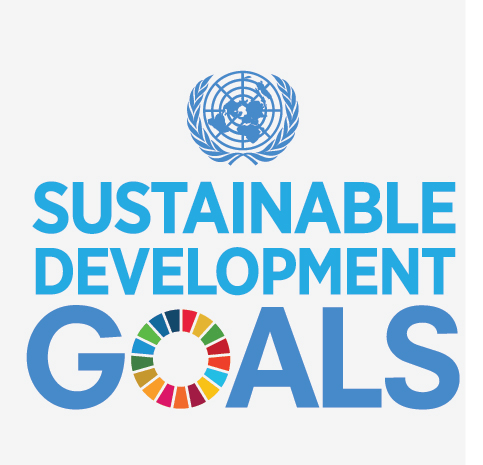
-
- GOAL 1: No Poverty
- GOAL 2: Zero Hunger
- GOAL 3: Good Health and Well-being
- GOAL 4: Quality Education
- GOAL 5: Gender Equality
- GOAL 6: Clean Water and Sanitation
- GOAL 7: Affordable and Clean Energy
- GOAL 8: Decent Work and Economic Growth
- GOAL 9: Industry, Innovation, and Infrastructure
- GOAL 10: Reduced Inequality
- GOAL 11: Sustainable Cities and Communities
- GOAL 12: Responsible Consumption and Production
- GOAL 13: Climate Action
- GOAL 14: Life Below Water
- GOAL 15: Life on Land
- GOAL 16: Peace and Justice Strong Institutions
- GOAL 17: Partnerships to Achieve the Goal
In the past, we have conducted deep-dive lessons on poverty, gender equality, hunger, education, climate action, and inequality among other goals. We integrate the experiences and knowledge of our Scholars to reinforce learning and appreciation of these topics. An example of this is a lesson on goal 16, with a thoughtful and open discussion of criminal justice issues within the US.
Final Project / Graduation
During the last week of our program, the Scholars work on final projects to demonstrate their tech skills and the SDG knowledge they’ve learned. In past years students have developed basic websites dedicated to one of the SDGs, coded basic games that are focused on one of the goals, done electronic projects with an SDG focus, and created original raps songs about one of the SDGs using musical coding with Sonic Pi & Python to create a back beat. Parents and families are invited to a presentation at the end of our program where the Scholars demonstrate and explain their creations. After graduation from OWL, Immersive Scholars are invited to join us in our OWL STEM Leadership Corps program where they can continue to study and deepen their knowledge and skills in STEM, Social Justice, & Ecological Issues.
Future Plans
Our vision is a world where every child can develop their potential in science, technology, engineering, and math. We also believe that learning with and collaborating with kids from different parts of the world will open minds to possibilities and realities outside of the immediate environment. This exchange and collaboration would be mutually beneficial to marginalized kids in the US and marginalized kids overseas. With these ends in mind, it is our intention to develop a global cohort of OWL Scholars.
We are working with partners in Nairobi, Kenya, to conduct a pilot of our OWL Immersive in 2018. Once Scholars complete the OWL Immersive (in the US and overseas) they will have the opportunity to increase their knowledge and understanding of STEM and social justice issues through international collaboration on projects during the OWL STEM Leadership Corps program.

